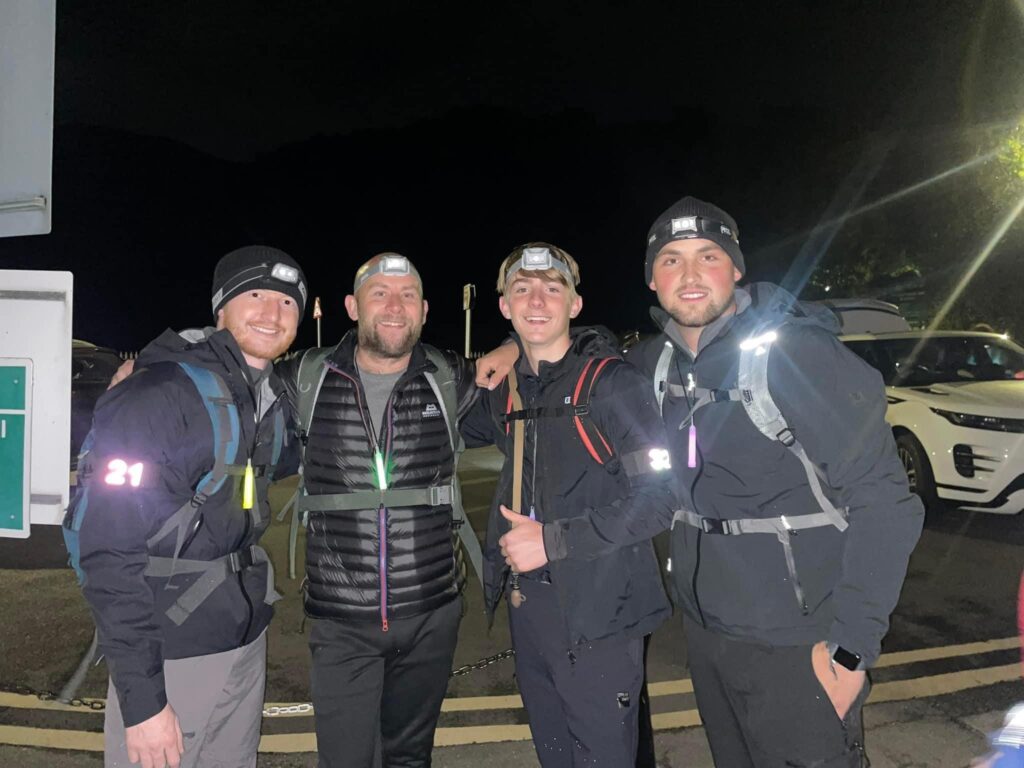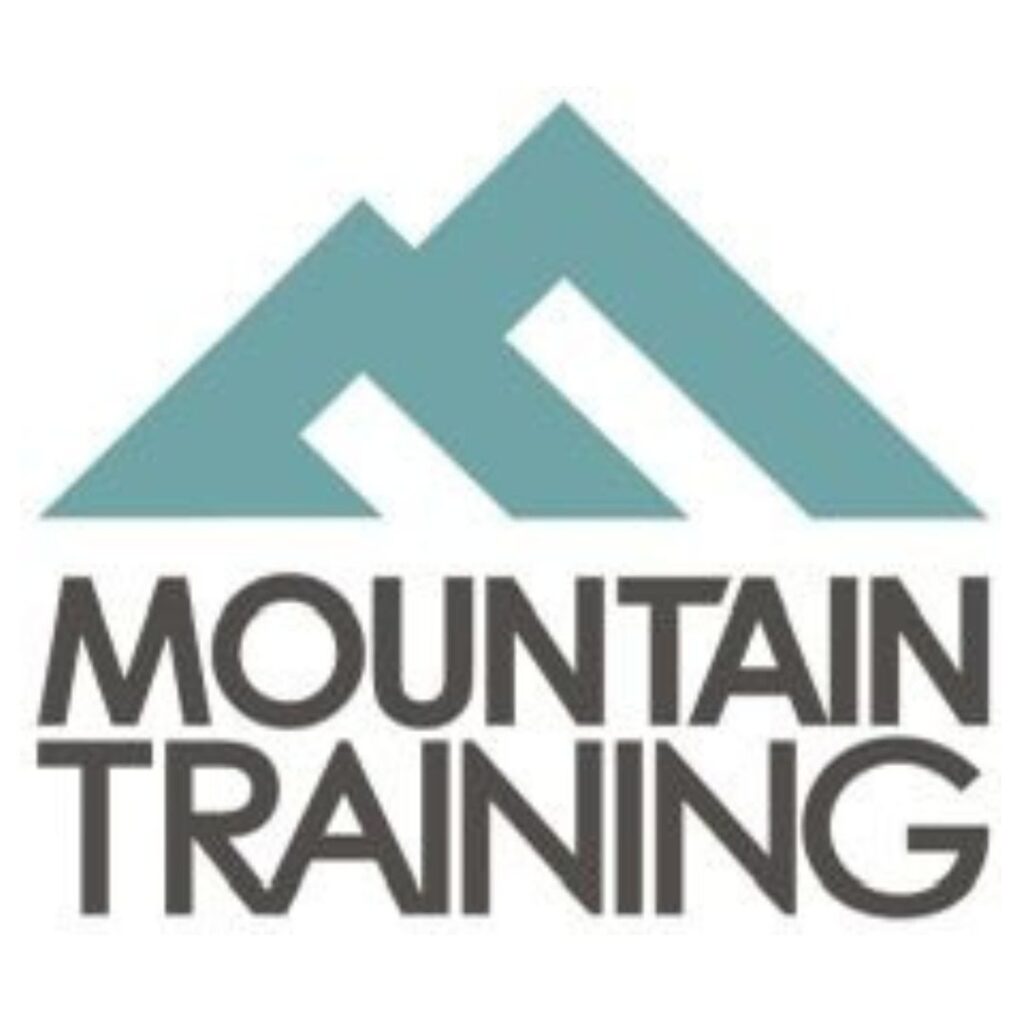Welsh 3000’s
Join us for a fantastic experience walking with the Dark Peak Guides Team.
LOCATION
Snowdonia National Park
COST
£95 per person
WEATHER
CHECK THE WEATHER
DURATION
24 Hours
DIFFICULTY
Hard
DISTANCE
30 Miles (48Km)
DETAILS OF YOUR TRIP
The Welsh 3000s Challenge is a legendary mountain challenge in Snowdonia National Park, Wales. It involves summiting all 15 peaks over 3,000 feet (914 meters) in height within 24 hours. These peaks are spread across three mountain ranges: the Snowdon Range, the Glyderau, and the Carneddau. The challenge covers about 30 miles (48 km) with around 13,000 feet (4,000 meters) of ascent.
The Welsh 3000s Peaks
Snowdon Range (5 peaks)
- Snowdon (Yr Wyddfa) – 1,085m
- Garnedd Ugain (Crib y Ddysgl) – 1,065m
- Crib Goch – 923m
- Elidir Fawr – 924m
- Foel-fras – 942m
Glyderau Range (5 peaks)
- Glyder Fawr – 1,001m
- Glyder Fach – 994m
- Tryfan – 917m
- Y Garn – 947m
- Foel-goch – 831m
Carneddau Range (5 peaks)
- Carnedd Llywelyn – 1,064m
- Carnedd Dafydd – 1,044m
- Pen yr Ole Wen – 978m
- Yr Elen – 962m
- Foel-fras – 942m
Challenge Overview
- Distance: ~30 miles (48 km).
- Ascent: ~13,000 feet (4,000 meters).
- Time Limit: Under 24 hours (although some break it into 2-3 days).
- Starting Point: Typically begins at Pen-y-Pass for the Snowdon Range or Nant Peris for a reversed route.

ON THE DAY:
PRE TRIP SUPPORT
Key Considerations
Preparation
- Fitness: The challenge demands high endurance and mountain experience.
- Training: Focus on long-distance hikes with significant elevation gain.
Preparation Tips:
- Training: Engage in regular long-distance walks and include elevation gains to build stamina.
- Gear: Invest in comfortable hiking boots, weather-appropriate clothing, and a reliable backpack.
- Nutrition: Carry sufficient water and high-energy snacks to maintain energy levels during the trek.
Participating in a guided event provides structure, support, and camaraderie, enhancing the overall experience of conquering the Welsh 3000’s.
SAFETY & WELLBEING
Please read the following carefully. It may affect your safety and the safety of others attending the course. Confirming and paying for your activity acts as an indication that you have read and understood it. It is merely to make sure you are aware of what you are letting yourself in for! We have taken all reasonable steps to provide you with the level of care and assurances of safety appropriate to these activities.
However, you should be aware that certain inherent risks remain which are integral to the activity, and which cannot be eliminated without destroying their unique character. Amongst other things, some of these risks can contribute to:
• The loss or damage of your personal clothing or equipment,
• Accidental injury or illness which could become very serious.
The level of real (as opposed to apparent) risk associated with these activities is very low. However, the type of risks may be something with which you are not familiar. The level of risk is generally no greater than that associated with, for example, the normal play of an average child, or that associated with normal adult undertaking recreational activities appropriate to their ability, fitness, age, etc.
Things you may encounter may include, but may not be limited to:
• Rough or rugged terrain: This may be on mountain or moorland, forestry, or agricultural land.
• Physical effort: All activities involve physical effort that at times may be more than you are used to. If you have medical conditions or injuries, past or present, these courses may not be suitable for you.
Environmental risks & hazards:
These may include such factors as lightening or floods although the more common would be changes in the weather, or unstable or slippery conditions underfoot. Slips and trips – this is the commonest type of accident throughout society and our courses are no exception. We will endeavour to ensure that the consequences of such a slip are not serious, but you should be aware that the likelihood of falling over or slipping is likely to be greater than you are used to.
Moreover, given the nature of the environment in which these may occur the situation can compound giving rise to a more serious incident. We have clear obligations and responsibilities, and we take these very seriously.
Acknowledgement
By booking onto this / these Activitys(s) with Dark Peak Guides you understand and recognize that:
• The nature of the risks may be different to ones I am familiar with.
• Certain inherent risks remain.
STAFF
GROUP SIZE
Ratio will be 1 Guide to every 10 Participants.
AGE LIMIT
WHAT YOU'LL NEED (KIT)
Essential Items
Footwear
- Sturdy, well-fitting hiking boots (preferably waterproof).
- Comfortable hiking socks (carry spares to change if needed).
Clothing
- Base Layer: Moisture-wicking T-shirt or thermal top.
- Mid Layer: Fleece or lightweight insulated jacket.
- Outer Layer: Waterproof jacket and trousers (Gore-Tex or similar breathable material).
- Lightweight hiking trousers or shorts (weather dependent).
- Hat and gloves (appropriate for the season).
Backpack
- 20–30L capacity (enough for essentials without being overly bulky).
- Rain cover for the backpack.
Navigation Tools
- Map and compass (or GPS device/phone with navigation apps).
- Route guide or printed instructions.
Hydration and Nutrition
- Water bottles or a hydration bladder (minimum 2 liters).
- High-energy snacks (nuts, energy bars, dried fruit, etc.).
- Packed lunch or light meal (for longer events).
Optional but Recommended
Safety and Emergency Gear
- First aid kit (plasters, blister pads, painkillers, etc.).
- Whistle (for emergencies).
- Head torch with spare batteries.
- Emergency foil blanket or bivvy bag.
Accessories
- Trekking poles (reduce strain on knees during ascents/descents).
- Sunglasses and sunscreen (UV protection even on cloudy days).
- Buff or neck gaiter (for wind protection).
Comfort Items
- Lightweight sit mat (for breaks).
- Spare dry clothes (to change into after the event).
Pro Tips
- Test Your Gear: Always use your kit during training hikes to ensure it’s comfortable and effective.
- Layering is Key: Adjust layers as needed to regulate body temperature and stay dry.
- Pack Light but Smart: Only carry what you need, but don’t skimp on essentials.
Would you like help picking specific gear, or do you want tips for a particular type of walking event?
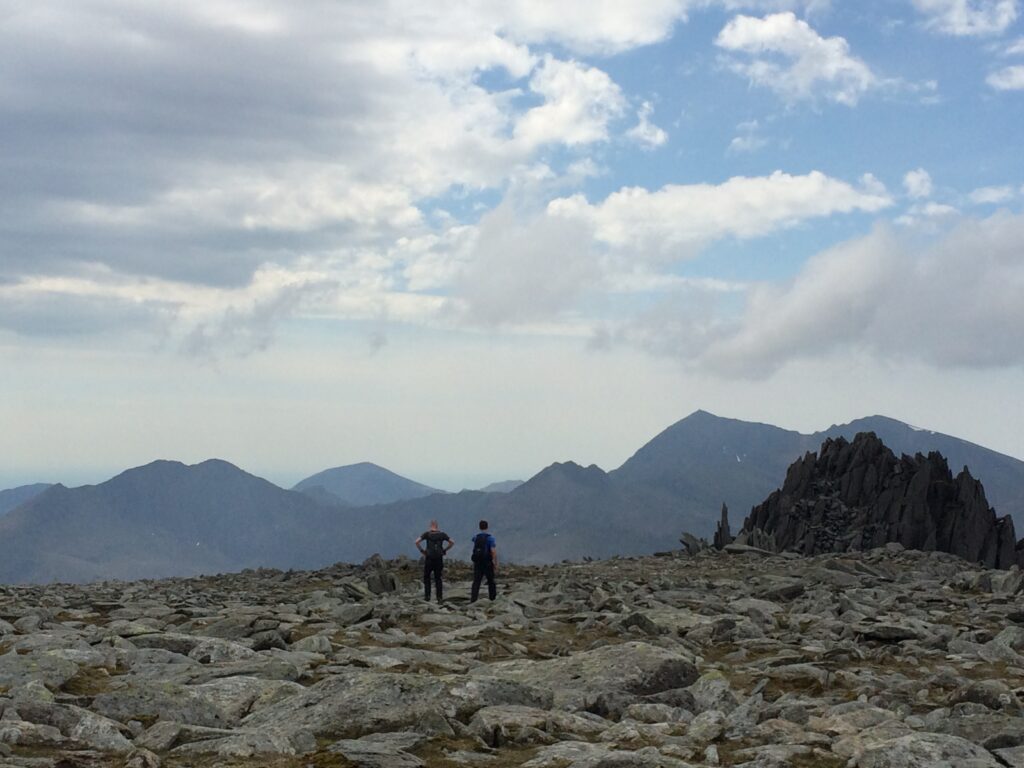
ENQUIRE HERE FOR SUPPORT FOR YOUR CHARITY EVENT:
JUST FILL IN THE FORM BELOW AND WE WILL BE IN TOUCH:
Walk/ Navigate/ Experience

Navigation Training
Learning to navigate is an essential skill for outdoor adventures, allowing you to explore with confidence and handle unexpected situations.
Dark Peak Guides offer 1:1 or Group Navigation Training.
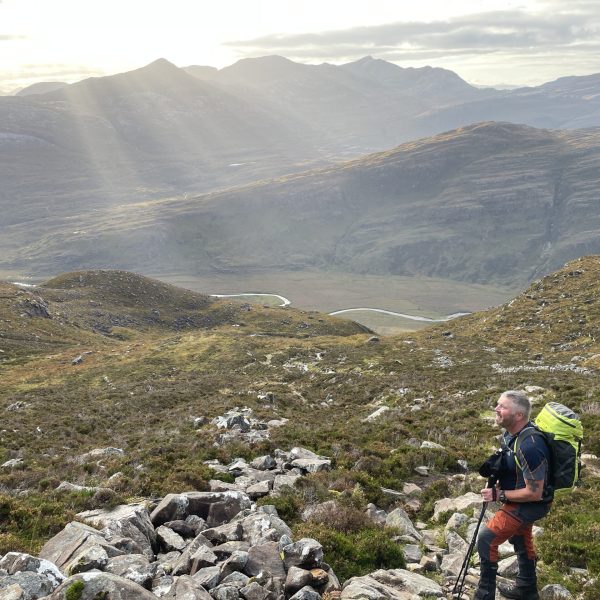
Challenges
Challenge events are organized activities designed to test participants physically and mentally, often in outdoor or endurance settings. These events range from hiking and running to multi-sport challenges and charity fundraisers.
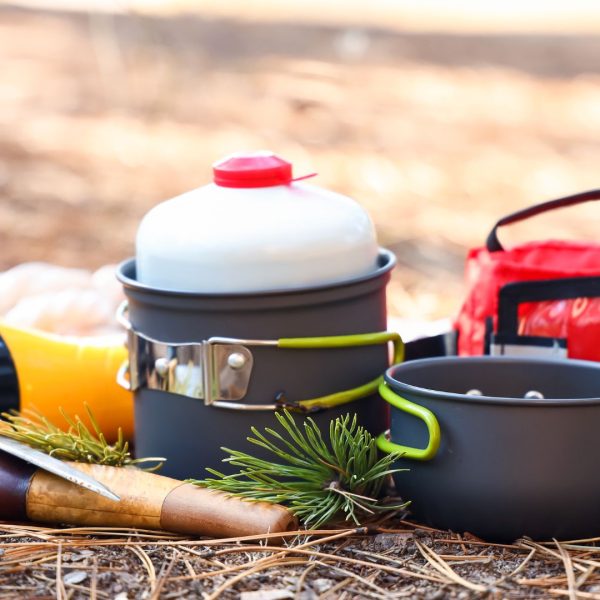
Wild Camping
Embarking on a guided wild camping expedition is an excellent way to experience the UK’s natural beauty while ensuring safety and gaining valuable outdoor skills.

